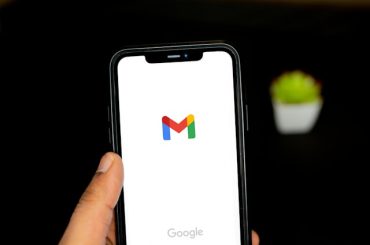The best marketing tactics vary widely depending on your industry, target audience, and business goals. However, some marketing tactics have proven to be effective across a broad range of contexts. Here are a few that are often considered among the best:
Content Marketing
Content marketing is widely regarded as one of the most effective marketing tactics. It focuses on creating and distributing valuable, relevant, and consistent content to attract and retain a clearly defined audience — with the ultimate goal of driving profitable customer action. Here’s a deeper look into why content marketing is highly effective:
- Builds Trust and Authority: You establish your brand as an authority in your field by providing your audience with valuable and informative content. This helps build trust with your audience as they rely on you for valuable information about their interests or needs.
- Supports Other Digital Marketing Strategies: Content marketing supports and enhances the effectiveness of other digital marketing strategies, such as SEO, social media marketing, and email marketing. For example, high-quality content is essential for SEO because it increases the likelihood of your website ranking higher in search engine results. Similarly, engaging content is more likely to be shared on social media, expanding your reach.
- Improves Brand Awareness and Recognition: By consistently producing content that resonates with your target audience, you increase brand visibility and awareness. As more people come across your content, your brand becomes more recognizable, which can lead to increased customer loyalty and new customer acquisition.
- Drives Organic Traffic: Content marketing is critical to driving organic traffic to your website. By optimizing your content for search engines and addressing topics that your target audience is searching for, you can attract more visitors to your site without the need for paid advertising.
- Generates Leads and Nurtures Relationships: Content can be used as a lead-generation tool. For example, offering valuable resources like ebooks, whitepapers, or webinars in exchange for contact information can help you build a list of potential leads. Once you have their information, you can continue to nurture those relationships through targeted email marketing, further guiding them down the sales funnel.
- Offers Long-term Value: Unlike some forms of advertising that stop generating value as soon as you stop paying for them, content marketing can provide lasting benefits. A high-quality piece of content can continue to attract and engage visitors for months or even years after it’s published, offering an excellent return on investment.
- Encourages Engagement and Community Building: Content marketing can help foster a sense of community around your brand. By encouraging comments, shares, and discussions around your content, you can engage your audience and build a loyal community of followers and customers.
Social Media Marketing
Social media marketing is a powerful tactic in the modern marketer’s toolkit, leveraging platforms like Facebook, Instagram, Twitter, LinkedIn, and TikTok to engage with a vast audience. Here’s a deeper exploration of why social media marketing stands out as a highly effective marketing strategy:
- Broad Reach and Diverse Audiences: Social media platforms boast billions of users worldwide, offering businesses an unparalleled opportunity to reach a vast and diverse audience. No matter your industry or target demographic, there’s a high likelihood your potential customers are active on one or more social media platforms.
- Enhanced Brand Awareness and Visibility: Regularly posting engaging content on social media can significantly boost your brand’s visibility. Each post your followers like, comment on or share increases your reach and introduces your brand to new potential customers, enhancing your overall brand awareness.
- Cost-Effective: Social media marketing can be highly cost-effective compared to traditional advertising methods. Creating a profile and posting organically is free on most platforms, and even paid advertising options offer the ability to reach a large audience at a relatively low cost, with the added benefit of targeting specific demographics, interests, and behaviors.
- Direct Engagement with Customers: Social media allows for direct and immediate interaction with your audience. This two-way communication can be invaluable for building relationships, receiving feedback, handling customer service inquiries, and engaging with your community in real time.
- Targeted Advertising: Social media platforms offer advanced targeting options for paid advertising, allowing you to reach specific segments of your audience based on demographics, interests, behaviors, and more. This precision targeting ensures that your advertising budget is spent on reaching the most relevant audience, leading to higher conversion rates.
- Insights and Analytics: Most social media platforms provide detailed analytics, giving businesses valuable insights into their audience’s behavior, preferences, and how they interact with your content. This data can inform your marketing strategy, helping you to refine your approach and create more compelling content.
- Increased Website Traffic: Social media can be a powerful web traffic driver by sharing content that links back to your website. This can be particularly effective when sharing blog posts, promotions, and new product announcements, encouraging your social media audience to visit your website for more information.
- Content Amplification: Social media can amplify the reach of your content beyond your immediate followers. When your audience shares content, it’s exposed to their networks, increasing its reach exponentially. This can be particularly effective for viral content, which can reach a vast audience quickly.
- Brand Loyalty and Community Building: You can build a loyal community around your brand by consistently engaging with your audience and providing value through social media content. This sense of community can increase customer retention and loyalty, as followers feel a personal connection to your brand.
Email Marketing
Email marketing is a highly effective marketing tactic for several compelling reasons. It involves sending targeted and personalized messages to a list of email subscribers to educate, inform, or encourage them to take a specific action, such as purchasing. Here’s a deeper look into the strengths of email marketing:
- Direct and Personalized Communication: Email allows for direct communication with individuals who have already shown an interest in your brand by subscribing to your list. This direct line lets you personalize your messages based on subscriber data, such as their name, preferences, and past interactions with your brand, making each communication more relevant and engaging.
- Cost-Effectiveness: Email marketing is highly cost-effective compared to many other marketing channels. It doesn’t require a significant budget to start, and the ROI is often substantial, with some reports suggesting an average return of $42 for every $1 spent on email marketing.
- Measurable Results: One of the significant advantages of email marketing is its measurability. Email marketing platforms provide detailed analytics that allows marketers to track open rates, click-through rates, conversion rates, and more. This data is invaluable for understanding the effectiveness of your campaigns and making informed decisions to optimize future efforts.
- Segmentation and Targeting: Email marketing platforms offer sophisticated segmentation features, enabling you to divide your email list into smaller, targeted groups based on specific criteria, such as demographics, purchase history, or engagement level. This segmentation allows for more targeted and effective messaging that resonates with each specific group, leading to higher engagement and conversion rates.
- Automation: Email marketing can be highly automated, allowing for the efficient scaling of personalized communication. Automated workflows can trigger emails based on subscribers’ actions, such as signing up for a newsletter, purchasing, or abandoning a shopping cart. This automation ensures timely and relevant communication without requiring constant manual intervention.
- Driving Sales and Conversions: Email marketing is a powerful tool for driving sales and conversions. You can encourage immediate action by directly delivering targeted offers, promotions, and information to your audience’s inbox. This is particularly effective for e-commerce businesses looking to boost sales or promote specific products.
- Customer Retention and Loyalty: Beyond acquiring new customers, email marketing is an excellent tool for customer retention and loyalty. Regular, valuable communication can keep your brand top-of-mind, encourage repeat business, and help build a long-term relationship with your audience.
- Content Distribution: Email is an effective channel for distributing your content to a broader audience. Whether it’s sharing the latest blog post, an informative video, or an industry report, email can help increase the reach of your content, driving more traffic to your website and enhancing your content marketing efforts.
Search Engine Optimization (SEO)
Search Engine Optimization (SEO) is a pivotal marketing tactic for enhancing a website’s visibility in search engine results pages (SERPs), making it a cornerstone strategy for digital marketers. Here’s an in-depth exploration of why SEO is so effective:
- Increased Organic Visibility and Traffic: SEO’s primary goal is to improve a website’s ranking in search engine results for relevant keywords and phrases. Higher rankings mean increased visibility and more organic (non-paid) traffic. This is particularly valuable because organic traffic is often more targeted and can lead to higher conversion rates.
- Cost-Effectiveness: SEO is cost-effective in the long run compared to paid advertising. While it may require an upfront investment in terms of time and resources (for content creation, website optimization, etc.), once you achieve a high ranking, you don’t pay for each click or impression as you do with pay-per-click (PPC) advertising. This can result in sustained traffic without the ongoing costs of paid search campaigns.
- Builds Credibility and Trust: Websites that appear on the first page of search engine results are often perceived as more trustworthy and credible by users. By optimizing your site and content for search engines, you can improve your brand’s credibility. This is particularly important in competitive industries where trust can be a significant differentiator.
- Enhances User Experience: SEO involves optimizing a website’s structure and content, making it more user-friendly. This includes improving site speed and mobile responsiveness and providing high-quality, relevant content. A better user experience leads to higher engagement, longer visit durations, and improved conversion rates.
- Targets the Entire Marketing Funnel: SEO is versatile enough to target users at all marketing funnel stages by using different types of content, from informational blog posts for those at the awareness stage to product comparisons and reviews for those closer to the decision stage. This comprehensive approach ensures that you can attract and engage users no matter where they are in their buyer’s journey.
- Long-term Strategy: While SEO can take time to show results, it’s a long-term strategy that can provide sustained benefits. High rankings can be maintained with ongoing optimization, offering a competitive advantage and continuous traffic growth over time, unlike paid advertising, which stops the moment you stop paying.
- Improves Local Visibility: For local businesses, local SEO can significantly enhance visibility by optimizing for location-based searches and appearing in Google’s local pack listings. This is crucial for attracting nearby customers and driving foot traffic to physical locations.
- Data-Driven Insights: SEO provides valuable data and insights into customer behavior, search trends, and keyword performance. This information can inform broader marketing and business strategies, helping you better understand your audience and market.
Pay-Per-Click (PPC) Advertising
Pay-per-click (PPC) advertising is a powerful marketing tactic where advertisers pay a fee each time their ads are clicked. It’s a way of buying visits to your site rather than attempting to “earn” those visits organically, as with SEO. Here’s a deeper look into why PPC is considered one of the best marketing tactics:
- Immediate Traffic and Results: Unlike organic strategies like SEO, which can take time to yield results, PPC can drive immediate traffic to your website as soon as your campaign goes live. This is particularly useful for new websites or businesses looking to boost their visibility and reach quickly.
- Highly Targeted Advertising: PPC platforms offer advanced targeting options, including demographic information (like age, gender, and location), interests, behaviors, and even specific times of day. This means you can tailor your ads to a specific audience, increasing the likelihood of conversions.
- Measurable and Trackable: One of the key advantages of PPC is its measurability. Platforms like Google Ads provide detailed analytics that allows you to track the performance of your ads in real time, including impressions, clicks, conversion rates, and ROI. This data is invaluable for optimizing your campaigns and maximizing their effectiveness.
- Control Over Costs:
- With PPC, you have significant control over your advertising budget. You can set a maximum budget for your campaign, daily spending limits, and even how much you’re willing to pay per click for specific keywords. This flexibility ensures that you can manage your marketing spend effectively, scaling up or down as needed.
- SEO Synergy: PPC can complement your SEO efforts by providing insights into keyword effectiveness and market trends. The data gathered from your PPC campaigns can inform your SEO strategy, helping you understand which keywords drive the most traffic and conversions.
- Remarketing Capabilities: PPC platforms offer powerful remarketing (or retargeting) tools that allow you to show ads to users who have previously visited your website but didn’t convert. Remarketing can significantly increase conversion rates by keeping your brand top-of-mind and enticing visitors back to complete a purchase or action.
- Visibility Across Multiple Platforms: PPC isn’t limited to search engines; you can also run ads on social media platforms, display networks, and even specific websites that your target audience frequents. This multi-platform approach allows you to reach your audience wherever they are online.
- Testing and Optimization: PPC campaigns are highly adaptable, enabling continuous testing and optimization. You can test different ad copy, landing pages, and keywords to see what works best and make real-time adjustments to improve performance.
Influencer Marketing
Influencer marketing has emerged as a highly effective marketing tactic, leveraging the reach and credibility of influencers across various platforms to promote products, services, or brands. Here’s a deeper look into the effectiveness of influencer marketing:
- Authenticity and Trust: Influencers have built loyal followings by consistently sharing content that resonates with their audience. When an influencer recommends a product or service, it is perceived as a genuine endorsement, lending credibility and trust to the brand they’re promoting. This perceived authenticity can significantly influence purchasing decisions.
- Targeted Reach: Influencers often have highly specific niches, whether it’s fashion, fitness, technology, or beauty, which means their followers are already interested in related products or services. By partnering with influencers whose niches align with your brand, you can reach a targeted audience more likely to be interested in your offering.
- Engagement: Influencer content tends to generate high levels of engagement compared to traditional advertising. Followers often feel a personal connection with influencers, leading to more likes, comments, and shares. This engagement increases brand visibility and enhances social proof, influencing potential customers.
- Content Creation: Influencers are content creators at heart, with a deep understanding of what resonates with their audience. By collaborating with influencers, brands can benefit from unique, creative, and highly engaging content that might not have been possible through traditional marketing channels.
- Cost-Effectiveness: While top-tier influencers can command high fees, many micro-influencers with more minor, highly engaged audiences can offer a better return on investment for smaller budgets. Moreover, the content produced can often be repurposed by the brand across other marketing channels, adding further value.
- Bypass Ad Fatigue: With the increasing use of ad blockers and general fatigue toward traditional advertising, influencer marketing offers a more subtle, organic way to reach potential customers without the overt sales pitch of conventional ads.
- SEO Benefits: Influencer marketing can also contribute to SEO efforts. Social media activity surrounding influencer campaigns can increase brand searches, and any backlinks from influencer blogs or websites can improve a brand’s search engine ranking.
- Versatility Across Platforms: Influencer marketing is not confined to a single platform. Influencers operate across various social media platforms, blogs, podcasts, and YouTube, allowing brands to reach audiences across multiple touchpoints.
Affiliate Marketing
Affiliate marketing is a performance-based marketing strategy where businesses reward one or more affiliates for each visitor or customer brought by the affiliate’s marketing efforts. It’s a win-win for both the brand and the affiliate, making it one of the best marketing tactics for several reasons:
- Cost-Effectiveness: Affiliate marketing is highly cost-effective because you only pay for actual sales or specific actions, such as leads or clicks, depending on your agreement. This performance-based model minimizes the risk of wasted advertising spend, ensuring that your marketing budget is used efficiently.
- Broader Reach: Affiliates can extend your brand’s reach to their audiences, which might be outside your current network. This expanded reach can introduce your products or services to new market segments, increasing visibility and potential sales.
- Targeted Traffic: Affiliates often have niche audiences that they’ve built trust with over time. By partnering with affiliates whose niches align with your product or service, you can attract more targeted and relevant traffic, leading to higher conversion rates.
- SEO Benefits: Affiliate marketing can also contribute to your SEO efforts. Backlinks from affiliates’ websites, especially if they are reputable and relevant to your industry, can improve your site’s search engine ranking, driving additional organic traffic.
- Scalability: Affiliate marketing is highly scalable. You can start with a few affiliates and gradually increase the number as you see fit, allowing you to scale your marketing efforts in line with your business growth without significantly increasing marketing costs.
- Low Risk: Since payment to affiliates is based on performance, there’s minimal risk involved. This makes affiliate marketing particularly attractive for businesses looking to maximize their marketing ROI while minimizing potential losses.
- Increased Credibility: When reputable affiliates or industry influencers promote your products, it lends credibility to your brand. Their endorsement serves as social proof, a powerful motivator for their audience to purchase.
- Continuous Promotion: Affiliates are incentivized to continuously promote their products or services to earn commissions, leading to ongoing marketing efforts that can generate sales around the clock, even outside their marketing activities.
Referral Marketing:
Referral marketing is a powerful strategy that leverages word-of-mouth to drive sales and customer acquisition. It involves encouraging satisfied customers to refer friends and family to your business, often incentivized through rewards. Here’s why referral marketing is considered one of the best tactics:
- High Trust Level: Referral marketing capitalizes on the trust between the referrer and their network. Recommendations from friends or family members carry significant weight, leading to a higher confidence level in your brand from the outset. This trust can lead to higher conversion rates compared to other marketing channels.
- Cost-Effectiveness: Referral programs can be highly cost-effective. Since you’re leveraging your existing customer base to acquire new customers, the cost associated with referral marketing is often lower than traditional advertising channels. Moreover, you typically reward referrals only after a new customer has purchased, ensuring a return on your investment.
- Improved Customer Loyalty: Customers who refer others to your brand will likely feel more invested in your success. This sense of involvement can enhance their loyalty to your brand. Additionally, customers acquired through referrals often have higher loyalty and lifetime value, as they were introduced to your brand through a trusted source.
- Targeted Marketing: Referral marketing naturally targets people likely to be interested in your products or services because friends and family members understand each other’s preferences and needs well. This built-in targeting leads to higher-quality leads compared to some broad-spectrum advertising methods.
- Easy to Track and Measure: Referral programs are easy to track and measure, especially using referral codes or dedicated referral links. You can quickly identify which customers are generating referrals and how effective those referrals are in terms of conversion rates and customer lifetime value.
- Viral Potential: A successful referral program has the potential to go viral, especially if the incentives are appealing and the process is straightforward. This can exponentially increase your brand’s exposure and customer base without a proportional increase in marketing spend.
- Enhanced Customer Experience: Referral programs can contribute to a positive customer experience by rewarding loyal customers for their advocacy. This acknowledges their value to your business and enhances their overall satisfaction and engagement with your brand.
- Scalability: Referral marketing programs can be easily scaled up or down based on your business needs and the response from your customer base. As your business grows, your referral program can expand accordingly, requiring relatively minor adjustments.
Event Marketing
Event marketing is a dynamic and impactful strategy that involves promoting a brand, product, service, or cause through in-person or virtual events. This tactic leverages the power of live experiences to engage audiences, build relationships, and create memorable brand impressions. Here’s why event marketing is considered one of the best tactics:
- Engagement and Interactivity: Events provide a unique opportunity for direct engagement with your audience, allowing for real-time interaction, feedback, and dialogue. This interactive environment fosters stronger connections between your brand and its audience, enhancing customer loyalty and affinity.
- Memorable Experiences: By creating immersive and engaging experiences, events can leave lasting impressions on attendees. These memorable experiences can significantly boost brand recall and favorability, setting your brand apart from competitors.
- Networking and Relationship Building: Events are excellent platforms for networking, allowing businesses to build and strengthen relationships with customers, partners, suppliers, and industry influencers. These connections can lead to future business opportunities, collaborations, and referrals.
- Content Generation:
- Events provide many content opportunities, from live social media updates and post-event recap videos to attendee testimonials and presentations. This content can be repurposed across various marketing channels, extending the event’s reach and impact beyond the attendees.
- Targeted Audience: Events can be tailored to specific audiences, ensuring the content and experience are highly relevant and valuable to those attending. This targeted approach increases the effectiveness of your marketing efforts and can lead to higher conversion rates.
- Brand Visibility: Participating in or hosting events can significantly increase your brand’s visibility within your industry. Sponsorship opportunities, branding at the event venue, and media coverage can all contribute to heightened brand awareness.
- Lead Generation: Events are effective platforms for lead generation, offering opportunities to collect attendee information through registrations, sign-ups, and interactions. These leads can then be nurtured through follow-up communications and targeted marketing campaigns.
- Product Launches and Demonstrations: Events provide the perfect setting for launching new products or services. Live demonstrations and hands-on experiences allow attendees to experience the benefits firsthand, generating excitement and interest.
Guerrilla Marketing
Guerrilla marketing is a creative and unconventional marketing strategy that aims to achieve maximum exposure and engagement through surprising and unconventional interactions. It relies on creativity, surprise, and an in-depth understanding of the target audience to create impactful marketing moments that capture attention and leave a lasting impression. Here’s why guerrilla marketing is considered one of the best tactics:
High Impact with Low Cost: One of the key advantages of guerrilla marketing is its cost-effectiveness. Unlike traditional advertising, which can be expensive, guerrilla marketing relies more on creativity and ingenuity than on a large budget. This makes it accessible to businesses of all sizes, including startups and small businesses with limited marketing funds.
Memorable Experiences: Guerrilla marketing campaigns are designed to be memorable, often by engaging people in unexpected ways or places. These unique experiences can create a strong emotional connection to the brand, leading to higher recall and word-of-mouth sharing.
Viral Potential: Due to their innovative and surprising nature, guerrilla marketing tactics have a high potential to go viral, especially with the prevalence of social media. People love to share unusual and creative experiences, which can extend the campaign’s reach far beyond the initial audience.
Engages the Audience: Guerrilla marketing often involves direct interaction with the audience, turning passive observers into active participants. This engagement can create a deeper connection with the brand and a more personal experience that resonates with consumers.
Flexibility: Guerrilla marketing campaigns can be executed in various settings, from urban streets to online platforms, and can be adapted to suit different industries and target demographics. This flexibility allows for highly targeted and relevant marketing efforts.
Builds Brand Differentiation: In a crowded marketplace, guerrilla marketing can help a brand stand out. By doing something completely different, brands can distinguish themselves, showcasing their creativity and willingness to take risks.
Generates Media Coverage: The unique and creative nature of guerrilla marketing campaigns can attract media attention, resulting in free publicity that amplifies the campaign’s reach and impact. This can be particularly valuable for smaller brands looking to increase their visibility.
Examples of marketing tactics
Content Marketing
- Blog Posts: Writing informative and engaging blog articles that provide value to your target audience and help improve your website’s SEO.
- Ebooks and Whitepapers: Offering in-depth content such as ebooks or whitepapers for download, often in exchange for contact information to build your email list.
Social Media Marketing
- Hashtag Campaigns: Creating a unique hashtag for your brand or product and encouraging customers to use it in their posts can increase engagement and visibility.
- Live Streaming: Hosting live sessions on platforms like Instagram, Facebook, or LinkedIn to connect with your audience in real-time, showcasing products, Q&A sessions, or behind-the-scenes looks.
Email Marketing
- Newsletter: Sending a regular newsletter with industry news, tips, company updates, and special offers to keep your brand top-of-mind.
- Drip Campaigns: Automated emails sent based on specific triggers or customer actions, such as a welcome series for new subscribers or follow-ups after a purchase.
SEO and PPC
- Keyword Optimization: Research and integrate relevant keywords into your website’s content and meta tags to improve search engine rankings.
- Google Ads Campaigns: Setting up targeted ad campaigns on Google Ads to appear in search results for specific keywords related to your business.
Influencer and Affiliate Marketing
- Product Reviews by Influencers: Partnering with influencers to review or feature your products on their channels, exposing your brand to their followers.
- Affiliate Programs: Creating an affiliate program where bloggers or other businesses promote your products in exchange for a commission on sales generated through their referral links.
Referral Marketing
- Customer Referral Program: Implementing a program where current customers are rewarded for referring new customers, often with discounts, store credits, or free products.
Event Marketing
- Webinars: Hosting educational webinars on topics of interest to your target audience, providing valuable information while subtly promoting your products or services.
- Trade Shows: Setting up a booth at industry trade shows to showcase your products, network with potential clients, and build brand awareness.
Guerrilla Marketing
- Public Installations: Creating eye-catching, branded installations in public spaces that prompt passersby to take notice, engage, and share on social media.
- Flash Mobs: Organizing a flash mob in a public place that unexpectedly promotes your product or brand, creating a memorable experience that people are likely to share.











